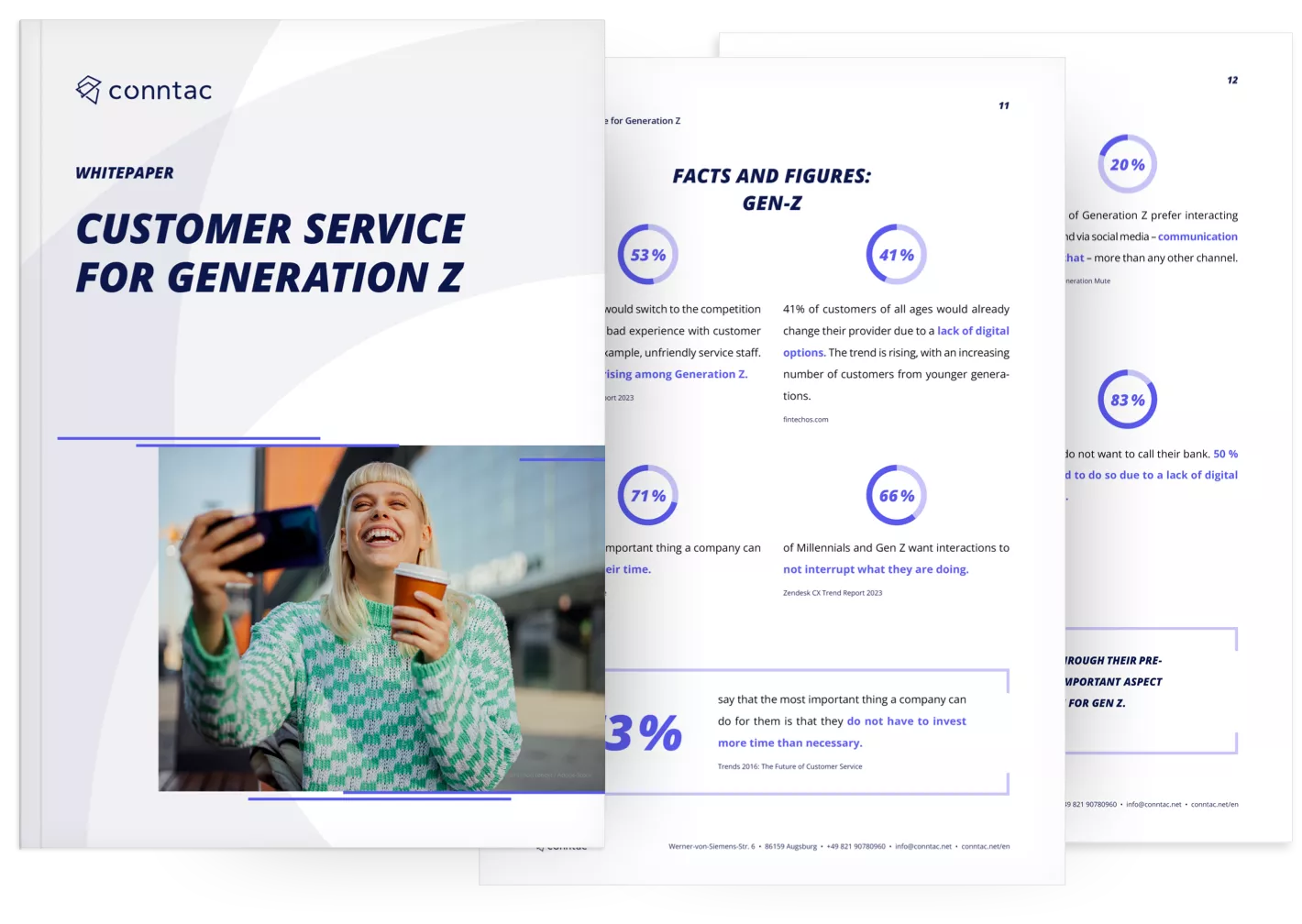"I had my phone on silent", "Feel free to send me a voice message" or "Sorry, no network" are some of the excuses young people use to avoid answering calls. According to a study, about 80% of Generation Z and Millennials are afraid to make or answer a call. But what is it all about, and more specifically, what does it mean for tomorrow's customer service?
The use of mobile devices has grown significantly in today's digital age. Even in German private households, calls are now made more frequently via smartphones than via fixed line telephones*¹. At the same time, you may be surprised to learn that the overall number of telephone calls is decreasing sharply.
Phone calls - a question of habit?
Millennials also known as Generation Y, born roughly between 1980 and 1994, and Generation Z, born roughly between 1995 and 2010*², are the users who most frequently use mobile phones and interact with other people via social networks. But they are also the ones who have lost the habit of interacting in person. This is not so much a communication problem as a matter of habit, which will limit their communication skills in the medium and long term.
Generation Silent - Why are people talking on the phone less?
Late-born millennials and early-born digital natives (Generation Z), often referred to as "Generation Silent", prefer to use messengers such as WhatsApp or social media, where it is not necessary for interlocutors to meet in real time for their communication. They prefer text messages and therefore pick up the phone less and less.
The generation feels that taking a call is an intrusion into their daily lives and takes up a lot of time. This was reported by 75% of respondents in a US study*³. Respondents feel that spontaneous calls are intrusive because calls interrupt what they are doing. At the same time, they don't know how long a call will keep them busy.
Gen Z and Millennials - Simple, convenient and non-intrusive
The reasons why Millennials and Generation Z dislike making phone calls can be summarised as follows:
- The generation perceives calls as an intrusion into their daily lives
- Fear of verbal confrontation and unpleasant conversations
- Voice messages that allow people to repeat and correct what is said are less risky
Both generations can therefore be described as convenient and simple. They demand less intrusive and asynchronous communication options where there is sufficient time to consider communication content. At the same time, they prefer the possibility of avoiding risky situations within communication. But not all the reasons can be explained by the convenience of the generation. There is a serious syndrome that, due to a sharp increase in screen time, has now become the undoing of some.
Telephonophobia
"Telephonophobia" refers to the anxiety caused by having to communicate with someone by voice. Four out of five respondents in the study*³ admitted that they have to prepare before a call because they fear saying something unpleasant and panicking.
How Gen Z and Millennials Influence Digital Communication Trends
Gen Z and Millennials are transforming digital communication by favoring quick, convenient, and self-directed interactions over traditional methods like phone calls. These generations strongly prefer self-service options such as FAQs, interactive chatbots, and mobile apps that allow them to solve problems independently and on their own time. Avoiding long hold times and direct phone conversations, they expect companies to provide seamless digital tools that deliver instant answers and support. This shift encourages businesses to invest in intuitive self-service platforms, automated support systems, and real-time digital communication channels to meet the expectations of these tech-savvy users. Embracing this trend not only improves customer satisfaction but also reduces support costs and enhances overall efficiency.










